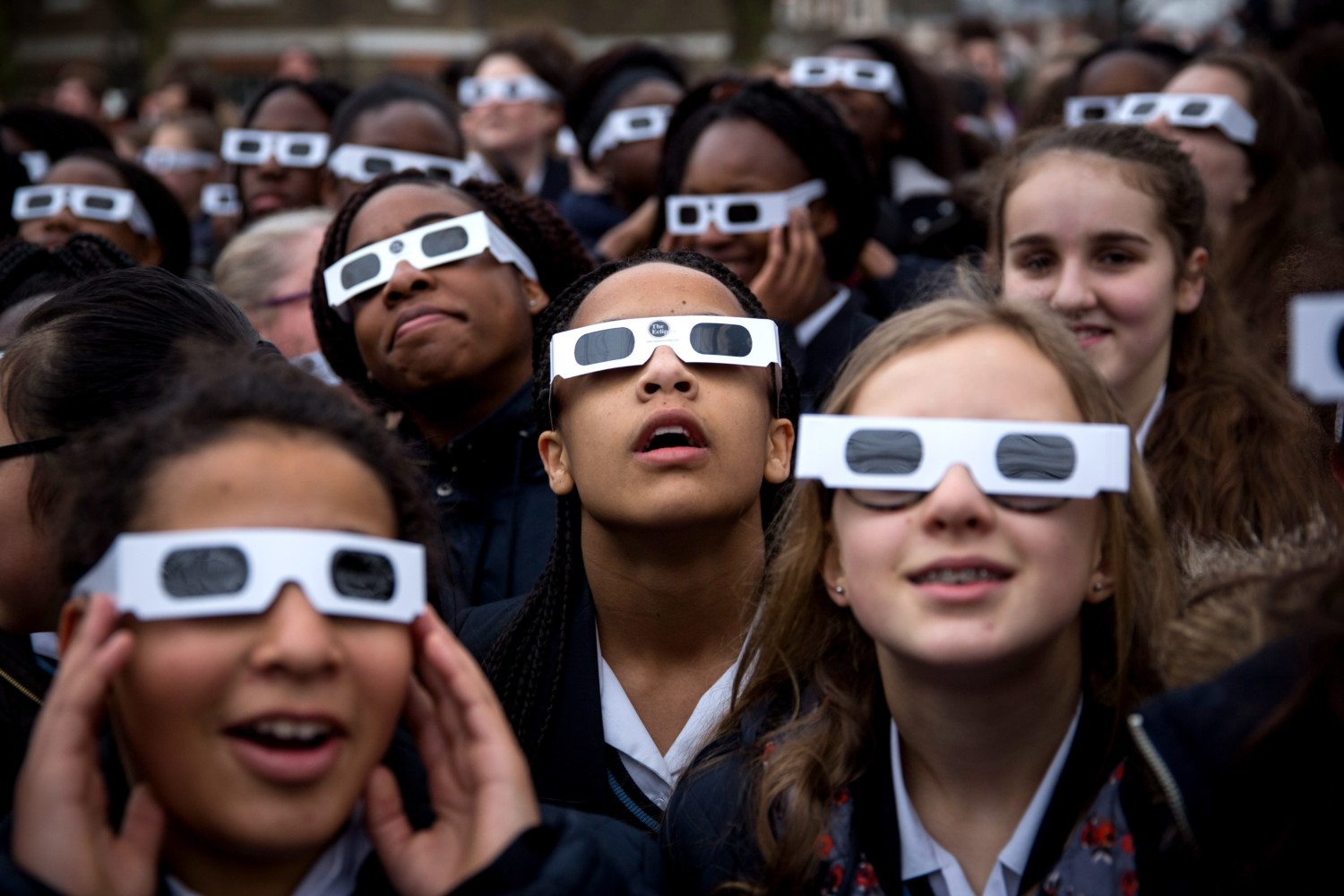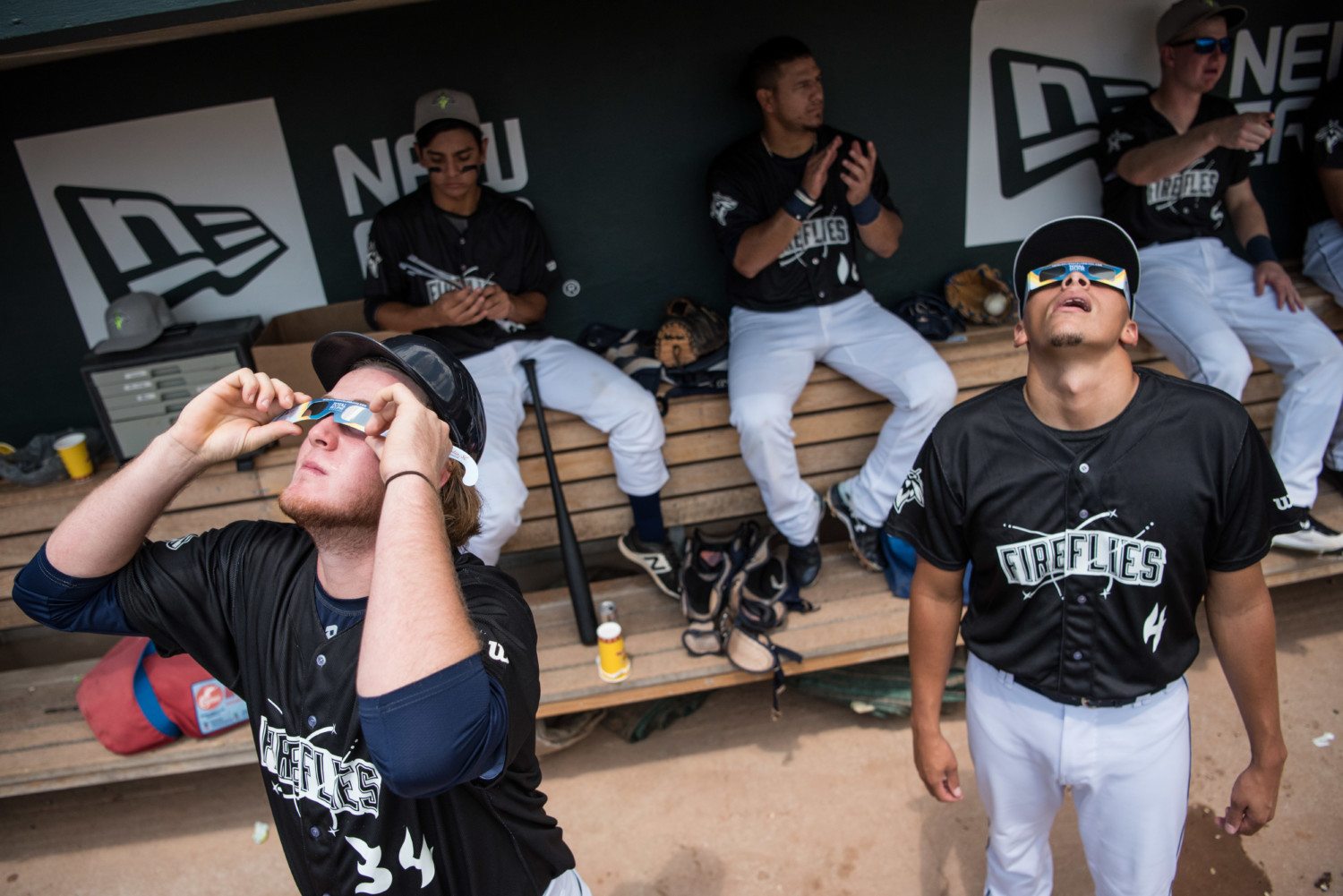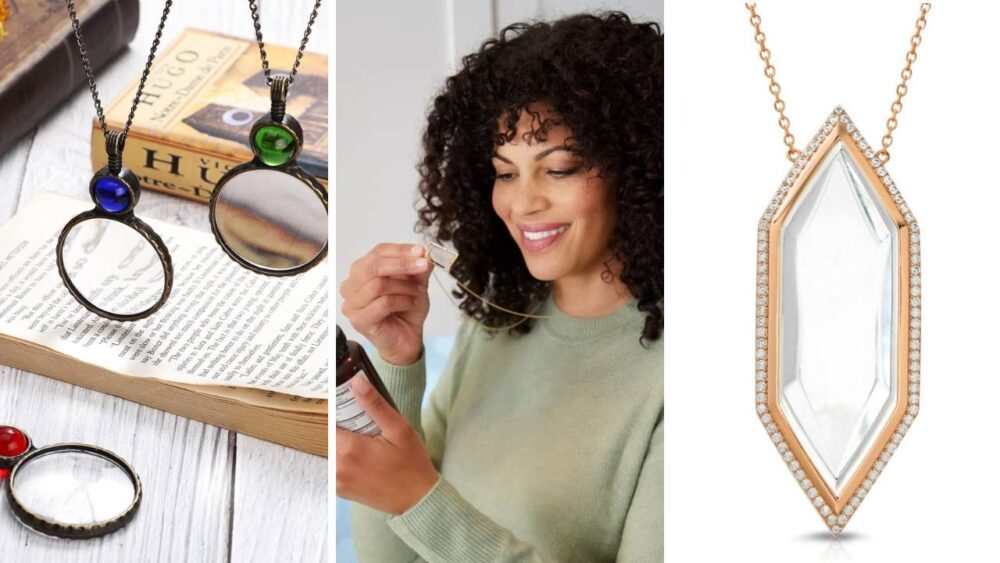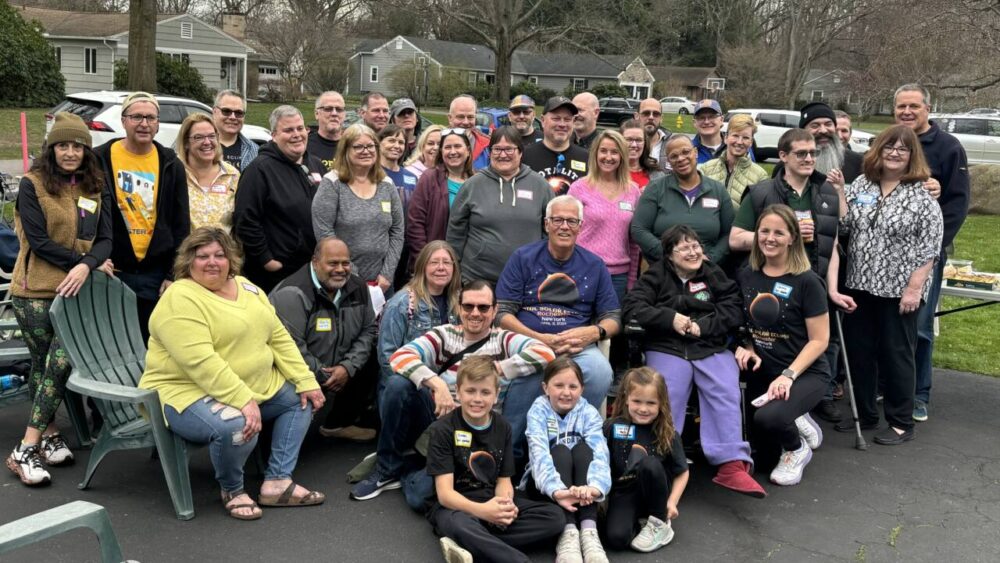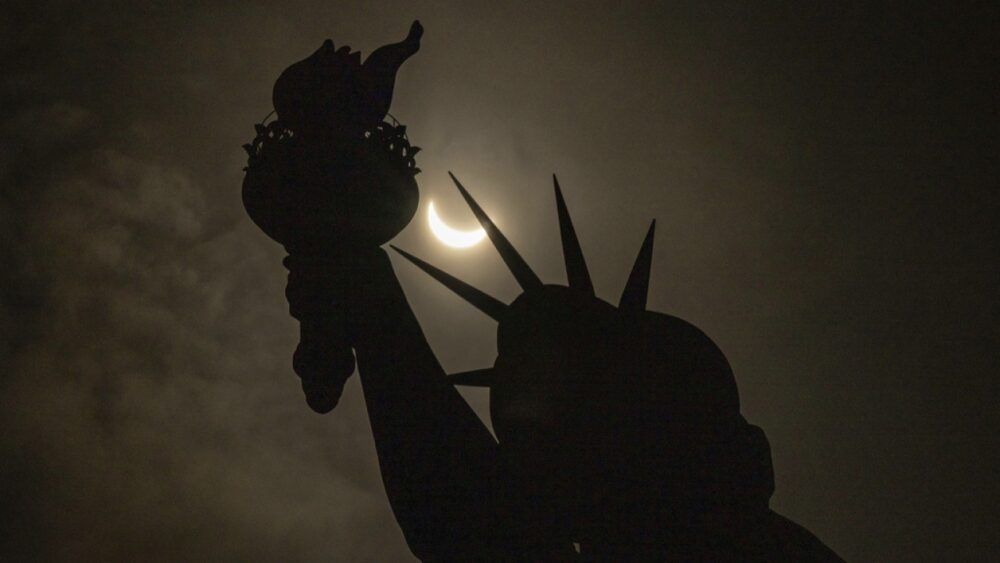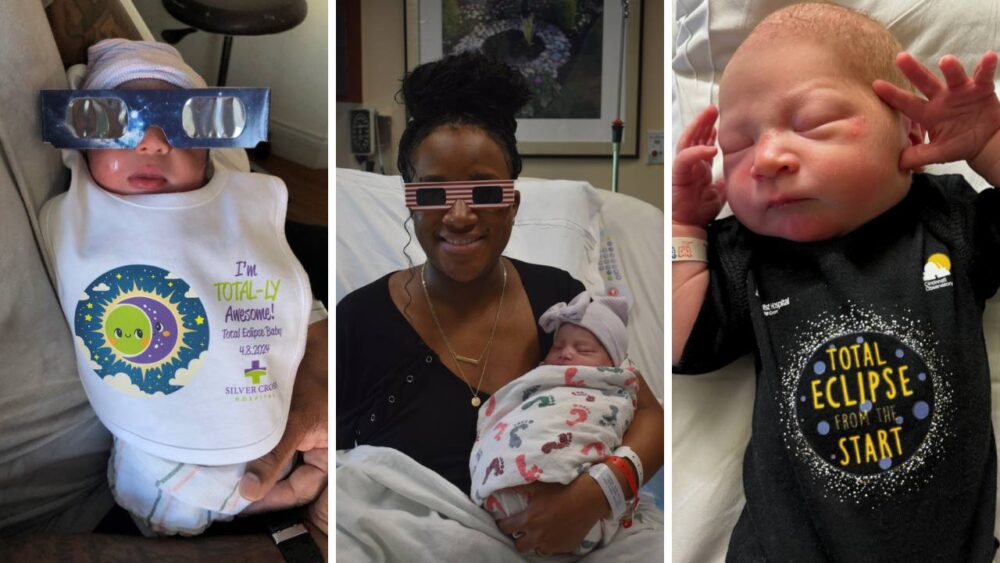How to tell if you hurt your eyes during the eclipse
Despite expert warnings that looking directly at the sun without special glasses during the solar eclipse could cause permanent damage to your eyes, a lot of people did it anyways.
If you are among the masses who got caught up in the eclipse mania and stared up at the sun without protecting your peepers or mistakenly used fraudulent eclipse glasses, you might be wondering: “Did I damage my eyes?”
In fact, soon after the coast-to-coast cosmic spectacle wrapped up, a lot of people were turning to Google to check on their eyes.
Washington Post social media editor Gene Park tweeted about the uptick in searches for “my eyes hurt.”
Everyone's googling "my eyes hurt" today pic.twitter.com/KJ0S5je7sX
— Gene Park (@GenePark) August 21, 2017
It’s never actually safe to stare directly at the sun. But the reason we hear so much about the dangers of it during an eclipse is because, naturally, people’s burning curiosity tempt them to look directly at the sun, even if it’s just for a couple of seconds.
Also, the moon’s covering makes it less painful to look at the sun longer, Ohio optometrist Michael Schecter told USA Today, which he noted was part of the problem. If it was painful, we’d look away sooner.
So, did you actually do any damage by watching the eclipse with your naked eyes?
First, answer this question: “How long did you look up at the eclipse without eye protection?”
If you just snuck a quick peek at the sun for a second or two, you’re fine, Jacob Chung, chief of ophthalmology at New Jersey’s Englewood Hospital, told USA Today. “Five seconds, I’m not sure, but 10 seconds is probably too long, and 20 seconds is definitely too long.”
Your eyes won’t feel any pain if they suffer serious damage to the retina, according to Chung. That’s because retinas don’t have pain fibers. But because retinas can’t heal themselves, it’s possible staring at the sun too long could have caused permanent damage.
Anecdotally, a man who suffered vision loss after staring at the sun during an eclipse in 1962, said he felt like he was getting his picture taken with a bright flash while he was watching the eclipse. He now has a blind spot about the size of a pea in one of his eyes.
For all those who were googling hurt eyes, though, you might be suffering from solar keratitis, which does heal. It’s akin to a sunburn on your cornea, which is the front part of your eye. Symptoms typically occur within 24 hours after exposure, and can include eye pain and sensitivity to light, according to Linda Chous, chief eye care officer at UnitedHealthcare told NBC Chicago.
If you suffered more serious retina damage, experts say the signs of vision loss could appear immediately or within two weeks after the direct exposure to the sun.
If you’re concerned that you are suffering vision problems or are experiencing discomfort after the eclipse, it’s of course best to step away from Google and go visit your eye doctor for an exam, experts say.


